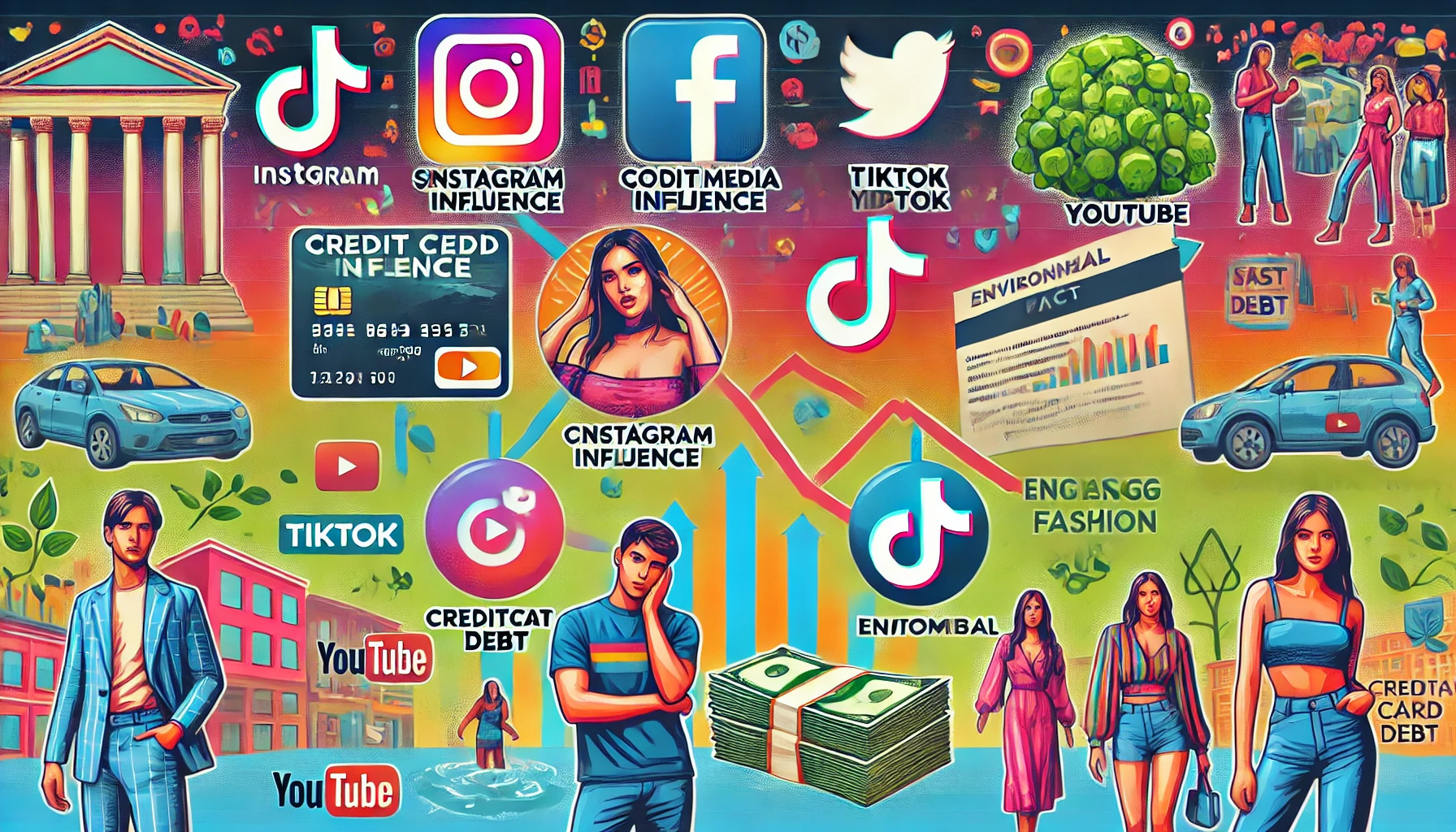In recent years, Americans’ credit card debt has escalated to a staggering $1.13 trillion, driven not only by rising interest rates and living costs but also by a pervasive culture of overconsumption. Social media influencers play a significant role in this phenomenon, enticing viewers to make numerous nonessential purchases, ultimately leading to financial strain and environmental degradation.
The Compulsive Shopper Phenomenon
The Rise of Influencer Marketing
Influencer marketing has transformed the digital landscape, with influencers showcasing a variety of products, from skincare aids to exercise equipment, in an enticing manner. A mere five-minute scroll through platforms like Instagram or TikTok bombards users with advertisements and promotional content, making it nearly impossible to escape the lure of consumerism.
The Psychology Behind Influencer Marketing
Influencers capitalize on their followers’ desire for a perceived better life. By flaunting luxurious lifestyles and promoting products as keys to happiness, they create a false sense of reality. According to a survey conducted by Later, 94% of influencers earn money through brand partnerships, further blurring the lines between genuine endorsements and paid promotions.
The Financial Impact on Consumers
The constant exposure to influencer content has significant financial repercussions. Many Americans fall into the trap of compulsive shopping, driven by the illusion that owning more products will enhance their lives. This behavior contributes to the soaring credit card debt, with personal care items and clothing being the primary culprits.
The Illusion of the Perfect Lifestyle
The False Reality of Influencer Content
Influencers meticulously curate their content to portray an idealized version of their lives. From perfectly organized homes to lavish skincare routines, the content is designed to make viewers believe that these lifestyles are attainable and desirable. However, the reality is often far from the truth, with many influencers staging their setups for the sake of their audience.
The Business of Social Media
Social media is inherently a business platform. Influencers leverage platforms like Amazon Storefronts to sell products, often without genuinely using or endorsing them. This monetization strategy exploits viewers’ compulsive buying habits, equating material possessions with happiness and success.
The Environmental Cost of Overconsumption
The Wastefulness of Social Media Trends
The influence of social media extends beyond financial strain; it also has dire environmental consequences. Influencers promote a lifestyle of excess, encouraging the use of single-use plastics and other disposable items. Videos showcasing pantry restocks and home organization contribute to a culture of waste, prioritizing aesthetics over sustainability.
The Fast Fashion Crisis
Social media has fueled the rise of fast fashion, characterized by cheaply produced, trendy clothing with a short lifespan. This industry is notorious for its environmental impact, contributing to textile waste and water pollution. The demand for fast fashion has surged by 400% in the past two decades, exacerbating the ecological crisis.
Labor and Ethical Concerns
Major fast-fashion retailers like Shein and Temu face accusations of labor law violations and unethical practices. Consumers, often unaware of these issues, continue to support these brands, further perpetuating the cycle of exploitation and environmental harm.
Towards a More Conscious Consumption
Rethinking Our Spending Habits
To combat the negative impacts of social media influence, it is crucial to reevaluate our spending habits. Rather than succumbing to the pressure of mimicking influencers’ lifestyles, we should focus on making mindful and intentional purchases. By prioritizing quality over quantity and sustainability over trendiness, we can reduce our financial and environmental footprint.
Advocating for Transparency and Responsibility
Influencers have a responsibility to promote transparency in their endorsements and collaborations. Authenticity should be at the forefront of influencer marketing, ensuring that viewers are not misled by deceptive practices. Brands and consumers alike must advocate for ethical standards in the digital marketing landscape.
Drowning In A Pool of Debt
The allure of social media influence is undeniable, but it comes with significant financial and environmental costs. By understanding the manipulative tactics of influencers and making conscious decisions about our consumption, we can break free from the cycle of overconsumption. It is time to prioritize sustainable practices and ethical behavior in the age of digital influence.
By adopting a more conscious approach to consumption and holding influencers accountable, we can foster a healthier and more sustainable relationship with social media and its pervasive influence on our lives.



Leave a Reply
You must be logged in to post a comment.